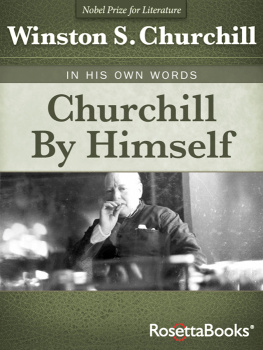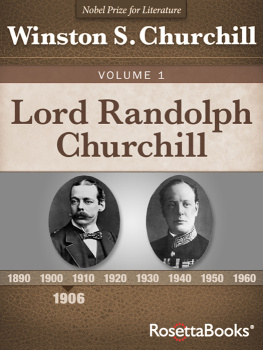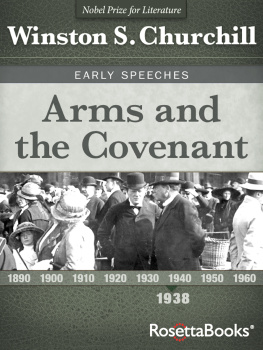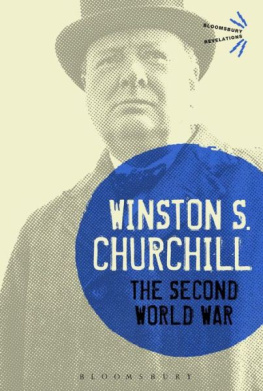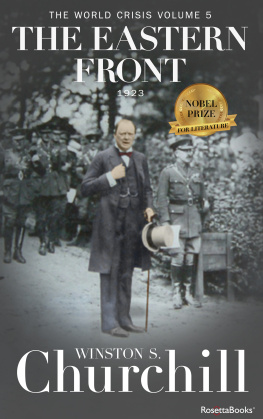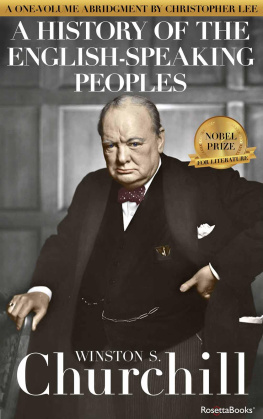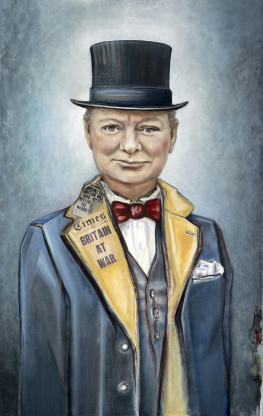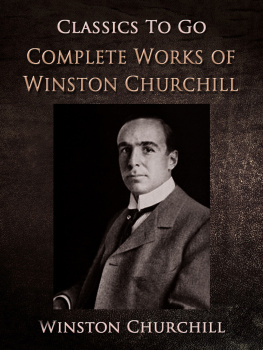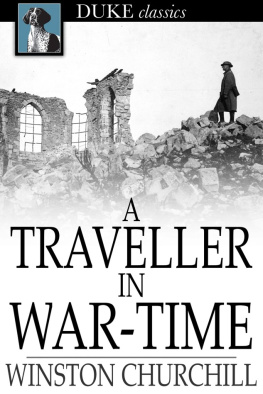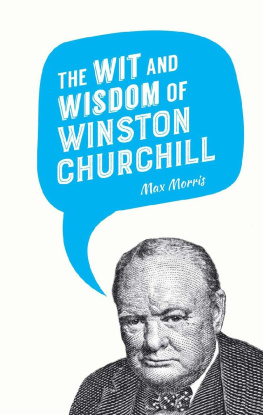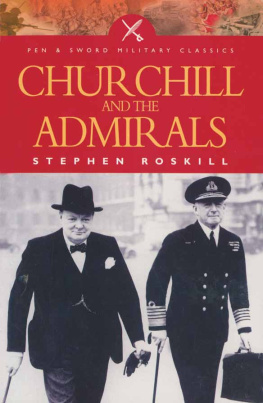
Churchill By Himself
The Definitive Collection of Quotations
Edited by Richard Langworth
Churchill By Himself: The Definitive Collection of Quotations
Text the Estate of Winston Churchill
Editorial arrangement and contribution 2008 by Richard M. Langworth
Internal photographs reproduced with permission of Curtis Brown Ltd., London, on behalf of the Broadwater Collection
All rights reserved. No part of this book may be used or reproduced in any form or by any electronic or mechanical means, including information storage and retrieval systems, without permission in writing from the publisher, except by a reviewer who may quote brief passages in a review.
Electronic edition published 2013 by RosettaBooks
Cover design by Alexia Garaventa
Image of Winston Churchill smoking a cigar reproduced by permission of Curtis Brown, London, on behalf of The Broadwater Collection, an archive of photographs owned by the Churchill family and held at the Churchill Archives Centre, Cambridge.
ISBN (EPUB): 9780795334320
ISBN (Kindle): 9780795334337
ISBN (paperback): 9781586486389
www.RosettaBooks.com
To Barbara, Ian and Mary;
In memory of the
pioneer recorders of Churchills wisdom:
Sir Colin Coote,
F. B. Czarnomski,
Kay Halle;
And in memory of
the true person of the twentieth century:
The Rt. Hon. Sir Winston Leonard Spencer Churchill
KG OM CH TD FRS
One who never turned his back
but marched breast forward,
Never doubted clouds would break,
Never dreamed, though right were worsted,
Wrong would triumph,
Held we fall to rise,
Are baffled to fight better,
Sleep to wake.
Robert Browning
CONTENTS
Why study Churchill? I am often asked. Surely he has nothing to say to us today? Yet in my own work, as I open file after file of Churchills archive, from his entry into Government in 1905 to his retirement in 1955 (a fifty-year span!), I am continually surprised by the truth of his assertions, the modernity of his thought, the originality of his mind, the constructiveness of his proposals, his humanity, and, most remarkable of all, his foresight.
Sir Martin Gilbert CBE
Churchill in His Own Words has a simple mission: to offer readers the most complete, attributed, annotated and cross-referenced collection of Winston Churchill quotations, ripostes, aphorisms, sayings and reflections ever published. In the words of Thomas Jefferson, it contains everything Churchill said about life, liberty and the pursuit of happiness.
Everything is probably an exaggeration. Most of this books 350,000 words are Churchills; yet they represent about 0.2 per cent of his 15 million published wordsbooks, articles, speeches, letters and papers. Doubtless I have overlooked deserving quotations; but I do believe that the kernel of his wit, wisdom and timeless relevance is captured here.
Churchills words, and 35 million more words about him, written or said by colleagues, biographers and friends, are the digital database that informs this book (see .
Why do we need another Churchill quote book? Because, despite some fine early efforts, no previous book offered a comprehensive, accurate portrayal of his timelessness, prescience, wit and wisdom.
The Internet, so helpful in many ways, is of limited assistance, bedizened as it is with corruptions, or words Churchill never said. Some he quoted from someone else; some are urban myths that have never been reliably attributed. For example, though he famously remarked that democracy is the worst form of Government, except for all those other forms that have been tried from time to time, he did not originate that lineand never claimed that he did. (Actually, he had many wiser observations about democracy, all of which are in this book.)
The Quality of Words
Like the Bible, Winston Churchill is quoted by philosophers, thinkers and politicians of every persuasion, because after fifty years of prominence on the political sceneunmatched by any other political figurehe was around long enough to say something they approve of (or can bend to their liking). But the reason Churchill is such an appealing source of quotations, I think, is the robust quality of his words.
Backed by a photographic memory of the great writers he read as a youth, and with his own impressive vocabulary, Churchill honed his prose in the most challenging venue of all: the House of Commons. Michael Dobbs, who writes historical novels so grounded in accuracy as to make them seem like fact, noted the crucial nature of Commons experience:
Those who make it to their feet in the Chamber place themselves in the hands of hazard, for no sooner do they start speaking than they discover that the green carpet they are standing on has turned to sand. Sometimes they are able to make an impression in the parliamentary sands that will endure, some mark that will linger after them for their children and grandchildren to admire. More often, however, the footprints are washed away with the evening tide. And sometimes politicians discover theyve stepped into quicksand that is just about to swallow them whole.
It is impossible to overstate the influence of that famous assembly which Churchill saw as his natural home. A third of the quotations hereinby far the largest from any single sourceare from House of Commons debate, and true, Churchill did step into quicksand on occasion. Yet he left a mark that lingers still.
Churchill himself said modestly that if he found the right words you must remember that I have always earned my living by my pen and by my tongue. His written canon is as voluminous as his speeches: he wrote over forty titles in over sixty volumes and thousands of articles. His countless letters are captured in the companion volumes of the official biography or collections such as Lady Soamess Speaking for Themselves: The Personal Letters of Winston and Clementine Churchill.
I might not be going too far to suggest that Britain survived to preserve world liberty in 1940 because it was led by a professional writer. At a time when there was little else to fight with, Churchill mobilised the English language, as Edward R. Murrow said, and sent it into battle.
Anyone who questions the value of reading the great books should consider Churchill. What he did not originate himself usually came from his capacious memory of the classics, from the Bible to Shakespeare. In April 1941, at a grim time in World War II, with Britain still alone and no sign of American or Russian intervention, he offered his countrymen the words of Clough, knowing, in that more literate age, that they instantly recognised them:
For while the tired waves, vainly breaking,
Seem here no painful inch to gain,
Far back, through creeks and inlets making,
Comes silent, flooding in, the main.
And not by eastern windows only,
When daylight comes, comes in the light;
In front the sun climbs slow, how slowly!
But westward, look, the land is bright.
That was a momentand there were many more, on subjects great and small, large and petty. To the Queen, whom he adored, he wrote in 1955:
Our Island no longer holds the same authority of power that it did in the days of Queen Victoria. A vast world towers up around it and after all our victories we could not claim the rank we hold were it not for the respect for our character and good sense and the general admiration not untinged by envy for our institutions and way of life. All this has already grown stronger and more solidly founded during the opening years of the present Reign, and I regard it as the most direct mark of Gods favour we have ever received in my long life that the whole structure of our new formed Commonwealth has been linked and illuminated by a sparkling presence at its summit.
Next page
